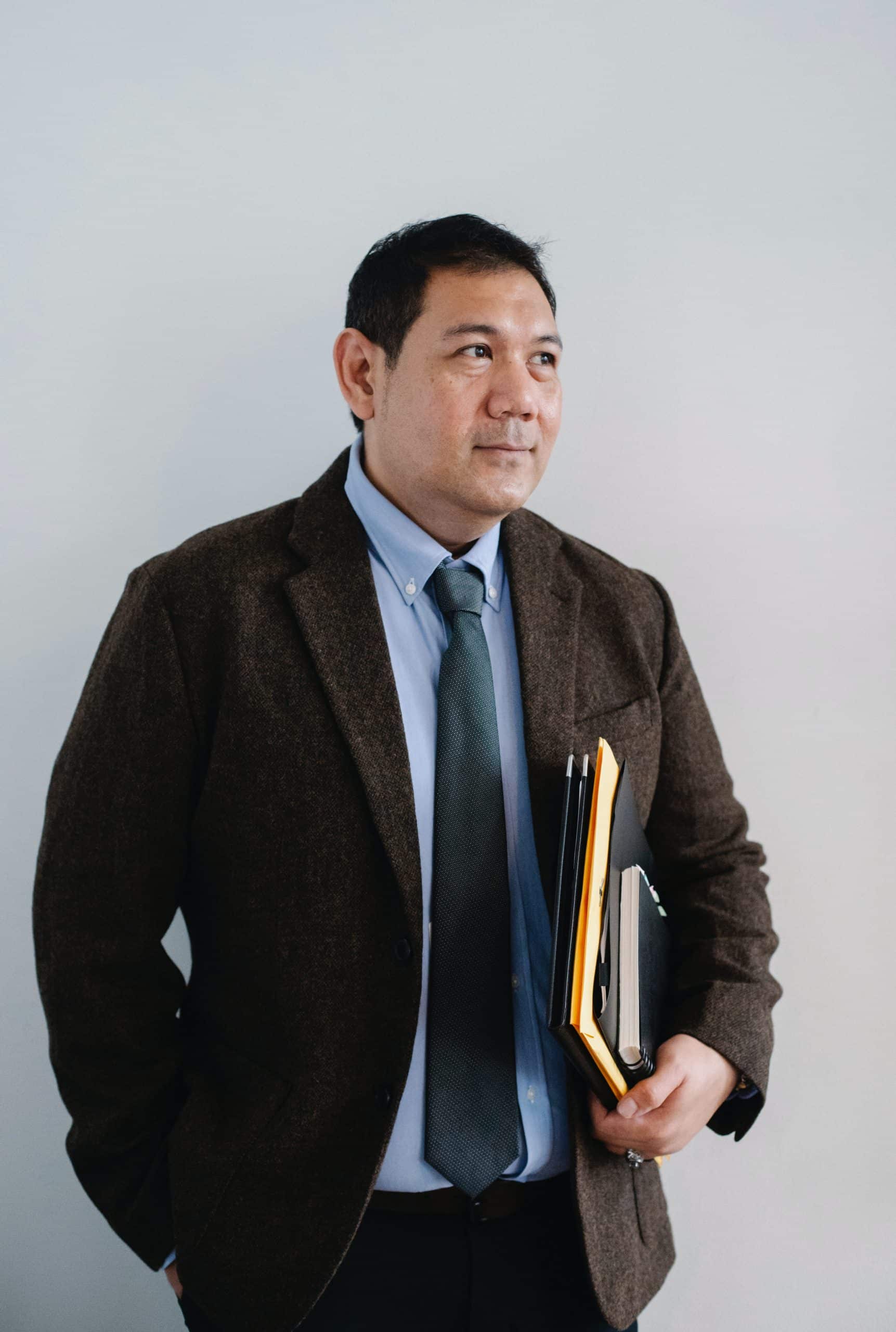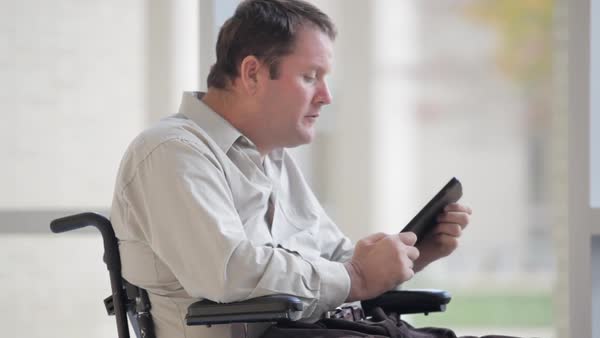Specialist Cancer Counselling for Adults
Empathetic Specialist Cancer Counselling by Those Who Understand
Welcome to a place where empathy meets expertise. Our service offers specialist cancer counselling specifically for adults with an early diagnosis of cancer, provided by psychotherapists who have personally faced cancer themselves. This unique perspective ensures that our therapists understand your challenges professionally and empathise with them on a deeply personal level.
With us, you’ll find a supportive environment that recognises and responds to your individual journey through cancer, helping you navigate this challenging time with genuine understanding and care.

Understanding Cancer
Navigating through the complex emotional landscape that a cancer diagnosis brings is no small feat. Cancer counselling emerges as a critical support system tailored to address the psychological turmoil experienced by patients and their loved ones.
At its core, cancer counselling is a specialist form of psychological support designed to help individuals cope with the overwhelming feelings that accompany a cancer diagnosis.

Specialist
The essence of cancer counselling lies in its patient-centred approach. It recognises that each person’s experience with cancer is unique, and thus, the support provided must be equally bespoke.
Through individual therapy sessions, we aim to offer a safe and non-judgmental space where patients and their families can openly express their fears, concerns, and emotions.

Common Challenges We Support you with
⇒ Chronic Pain
⇒ Abelism/ Discrimination
⇒ Insomnia
⇒ Eating Issues
⇒ Worries about the future
⇒ Financial Strain
⇒ Employment Issues
⇒ Communication
⇒ Carer Problems
⇒ Physical Challenges
⇒ Memory Retention
⇒ Social Isolation
⇒ Healthcare Challenges
⇒ Access to Services

Mental Health Issues We Work with Daily
⇒ Depression
⇒ Generalised Anxiety
⇒ Social Anxiety
⇒ Post Traumatic Stress
⇒ Low Self-esteem
⇒ Emotional Regulation
⇒ Anger
⇒ Psychosis
⇒ Stress
⇒ Grief and Loss
⇒ OCD
⇒ ADHD
⇒ Self-Harm
⇒ Suicidal Thoughts

Our Cancer Counselling
What is Cancer Counselling? – Cancer Counselling is a tailored therapeutic approach designed to address the unique emotional and psychological needs of individuals who have an early diagnosis.
The Role of a Counsellor – Our psychotherapists act as a guiding light, providing emotional support, coping strategies, and a safe space for expression and healing.
Coping Strategies – Learning to navigate the new realities of life post-diagnosis is pivotal. Counselling equips individuals with the tools needed for this journey.
The ultimate goal of cancer counselling is to foster mental well-being where individuals feel supported, resilient, and hopeful.

Free Funding for Specialist Cancer Counselling
A recent diagnosis of Cancer is a multifaceted condition that requires a deep understanding of its physical and psychological impact on the individual, which can, in turn, influence their mental well-being and daily living standards.
In many parts of England and Wales, if you have been discharged as unsuitable by the local mental health service, we can apply for specialist cancer counselling for those with an early diagnosis of cancer or longer-term diagnoses.
Read more
How are funding applications processed?
Upon showing interest in our counselling services, clients are promptly scheduled for an assessment session within seven days.
This initial meeting is crucial, as it allows us to grasp each client’s unique challenges and needs, fostering an environment of empathy and understanding and a step towards therapeutic progress.
Post-assessment, our team is responsible for applying for free funding on the client’s behalf.
This process is managed meticulously to ensure a seamless and stress-free experience for our clients and free them from additional administrative burdens.
Counselling sessions are typically set to begin within 12 weeks of assessment and approval (this can vary region by region).

Self-Paying: Accessible and Prompt Cancer Counselling
Opting for self-pay means you can commence your counselling journey typically within a week, offering immediate support when you need it most. Furthermore, for those awaiting free funding approval, self-pay provides an opportunity to start counselling without delay, ensuring continuity of care and support.
In line with our mission to deliver exceptional cancer counselling, we are acutely aware of the importance of affordability.
Self-paid clients within the UK can take advantage of specialist counselling.
Read more
To make early-diagnosed cancer counselling more accessible, we have substantially subsidised our self-paid plans. This approach reflects our deep commitment to making cancer counselling available to a broader audience, irrespective of financial circumstances.
Our subsidised rates are designed with your needs in mind: an introductory session costs £50, followed by a package of three sessions for £180.
These rates are set to reduce financial pressure for our clients.
We firmly believe that financial constraints should not prevent people from accessing the vital support and guidance necessary for managing an early diagnosis of cancer.
We aim to enable more individuals to benefit from our professional, empathetic, and specialist counselling services.
Through this self-pay option, we strive to make a meaningful and positive impact on the lives of people with early cancer diagnoses, offering them the support they need at an affordable and accessible price.
Free Funding
Applications 18+
Most Regions in England
and Wales
Free Assessment Session
The free funding criteria are
based on one or more of the following:
♣ In Care or has a full-time
Carer
♣ Early Diagnosis of Cancer
We also offer self-paid
counselling if you would like immediate support.
Other Referrals
♣ Professional Organisations
♣ Mental Health Providers
♣ Friends & Family
♣ Carers
♣ GP’s
Support for Newly Diagnosed People with Cancer

Key Benefits of Cancer Counselling with DisabilityPlus
Personal Experience and Professional Expertise: Our psychotherapists have personal experience with cancer, providing a unique blend of empathy and professional counselling skills.
Tailored Support for Early Stages: Specialised in supporting adults with a recent or stage one cancer diagnosis, addressing the unique emotional needs at this critical time.
Emotional Resilience Building: Focused on developing coping strategies and emotional resilience to help clients manage a cancer diagnosis’s initial shock and stress.
Empathetic Understanding: A deep understanding and empathy, ensuring clients feel genuinely heard and supported.
Safe and Supportive Environment: We provide a welcoming, non-judgmental space for clients to express and explore their feelings and concerns.
Comprehensive Emotional Care: Comprehensive care that goes beyond just dealing with immediate emotional reactions preparing clients for the ongoing journey.
Community of Support: Being part of a community with similar experiences fosters a sense of belonging and mutual support.
Accessible and Flexible Services: Offering flexible counselling options, including in-person and online sessions, to accommodate the varying needs of our clients.

Emotional Resilience Building in the Face of Cancer

Summary of Our Unique Cancer Counselling Service
Our service offers understanding for adults with cancer, offering a unique blend of professional counselling and personal experience in cancer care. By merging the insights of therapists who have navigated the cancer journey with the needs of those recently diagnosed, we create a profoundly empathetic and supportive environment.
We are dedicated to making this journey smoother and more manageable, emphasising building resilience and understanding during this challenging time. Our commitment extends to offering financial support options for those in exceptional circumstances, underlining our dedication to being a comprehensive, compassionate, and accessible service for all who need it.
Hear From Those We’ve Supported: Client Testimonials
Discover the real impact of our cancer counselling services through the words of those who have experienced them firsthand. Below, you’ll find heartfelt testimonials from clients who have navigated their cancer journey with our support. These stories reflect the challenges faced and the strength and resilience fostered through our mental health counselling services.
Each testimonial offers a unique insight into coping with a cancer diagnosis and the transformative power of empathetic, experienced counselling. Read on to understand the actual difference our services have made in the lives of individuals and their families.
“After my diagnosis, I felt lost and confused. The support I received from my therapist at this service was life-changing. Not only did they have professional expertise, but their personal experience with cancer made me feel truly understood. It was comforting to talk to someone who genuinely knew what I was going through.” – Jane, Leeds
“I was amazed at how quickly I was able to start my counselling sessions after reaching out. The swift response and the ease of setting up appointments online was a relief during a time when everything else seemed so complicated.” – Sarah, Manchester
“From my first enquiry to my regular sessions, the customer service has been exceptional. The team was attentive, compassionate, and always willing to go the extra mile to accommodate my needs. Their responsiveness and care made a significant difference in my experience.” – Tony, Bristol
“My counsellor was not just a professional but also a friend in my journey. They approached each session with such warmth and friendliness, making it easier for me to open up and share my feelings. This friendly atmosphere has been a huge part of my positive experience with the service.” – Daniel, Glasgow

Cancer Counselling Information
Navigating the Emotional Landscape of Early Cancer Diagnosis
Receiving an early diagnosis of cancer can be a tumultuous experience, emotionally speaking. It often brings a surge of feelings that can be hard to process – shock, fear, and uncertainty are common initial reactions. You might find yourself grappling with disbelief, questioning ‘why me?’ or feeling overwhelmed by the implications for your future.
The early stages of cancer are particularly challenging because they mark the beginning of a journey into the unknown. There’s often a stark contrast between the physical reality, where the cancer might not yet be manifesting severe symptoms, and the emotional turmoil that such a diagnosis can unleash. Feelings of anxiety and vulnerability may surface as the certainty of your health is suddenly cast into doubt.
This is where mental health counselling plays a crucial role. Engaging in mental health counselling following an early cancer diagnosis provides a supportive space to process these complex emotions. It offers a way to navigate through the initial shock and confusion, helping to manage feelings of fear and anxiety. Counsellors, especially those with personal experience with cancer, can offer unique insights and understanding, making them particularly well-equipped to empathise with and support you.
Moreover, mental health counselling at this stage can also prepare you for the journey ahead. It helps in developing coping strategies for dealing with the emotional rollercoaster of cancer treatment and the lifestyle changes it may necessitate. Counselling aims to strengthen your mental resilience, ensuring you are emotionally fortified to face the various stages of treatment and recovery.
In summary, the emotional impact of an early cancer diagnosis is profound and can be as challenging to deal with as the physical aspects of the disease. Mental health counselling provides an essential resource in these early stages, offering emotional support, coping mechanisms, and a comforting space to voice and validate your feelings, ensuring you don’t have to face this journey alone.
Understanding the Next Steps: Medical Interventions After an Early Cancer Diagnosis
Following an early diagnosis of cancer, it’s crucial to understand the potential medical interventions that may be recommended. These interventions are tailored based on the type, stage, and location of the cancer, your overall health and personal preferences.
Diagnostic Tests: Initially, further diagnostic tests may be necessary. These could include blood tests, imaging scans, or biopsies to determine the specific characteristics of the cancer and to confirm the stage. This information is vital in planning the most effective treatment approach.
Treatment Options: The mainstay of cancer treatment usually involves a combination of surgery, chemotherapy, and radiation therapy. In the early stages, surgery might be suggested to remove any tumours. Chemotherapy and radiation therapy are often used to kill or shrink cancer cells, and they may be recommended either before or after surgery to ensure the thorough treatment of the disease.
Targeted Therapies and Immunotherapy: Advances in medical science have led to targeted therapies and immunotherapy, which work differently from traditional chemotherapy. These treatments specifically target cancer cells with fewer side effects, improving the quality of life during treatment.
Hormone Therapy: For hormone-sensitive cancers, such as certain types of breast and prostate cancers, hormone therapy may be used to block the body’s natural hormones that fuel cancer growth.
Follow-Up Care and Monitoring: Regular follow-up care is essential after initial treatment. This includes periodic scans and tests to monitor your health and to check for any signs of cancer recurrence. It also provides an opportunity to manage any treatment side effects and adjust the treatment plan if necessary.
Holistic and Supportive Care: Besides these medical interventions, holistic care, including nutrition counselling, physical therapy, and mental health support, plays a crucial role in the overall treatment plan. Considering these aspects is essential to maintain your quality of life during and after treatment.
It’s essential to discuss all these options with your healthcare team. They will guide you through each step, helping you make informed decisions about your treatment. Remember, every cancer journey is unique, and your treatment plan will be tailored to your specific needs and circumstances.
Addressing Specific Challenges Faced by Adults with Cancer: The Role of Mental Health Counselling
Adults diagnosed with cancer face a multitude of specific challenges that can impact their mental and emotional well-being. Mental health counselling is crucial in addressing these challenges, providing support and strategies to help individuals cope effectively.
Coping with Uncertainty and Fear: One of the most immediate challenges is dealing with the uncertainty and fear that a cancer diagnosis brings. Mental health counselling offers a safe space to express and work through these fears, helping individuals find ways to manage uncertainty and maintain control over their lives.
Managing Stress and Anxiety: The stress and anxiety associated with cancer, from diagnosis through treatment and into recovery, can be overwhelming. Counselling techniques, such as cognitive-behavioural therapy (CBT), can be particularly effective in managing these feelings, helping to break the cycle of negative thoughts and providing practical strategies to cope with anxiety.
Dealing with Physical Changes and Symptoms: Cancer and its treatments can lead to significant physical changes and symptoms, which can affect self-esteem and body image. Counselling can help individuals come to terms with these changes, promoting a healthier body image and helping to rebuild confidence.
Navigating Relationship and Social Changes: Cancer can affect relationships with family, friends, and colleagues. It can lead to feelings of isolation or change the dynamics of personal relationships. Mental health counselling can assist in developing communication skills and strategies to maintain and adapt relationships, ensuring a supportive social network.
Handling Work and Financial Stress: Concerns about work and finances are common, as cancer can affect one’s ability to work and lead to financial strain. Counselling can support navigating these practical issues, including discussing ways to manage work commitments and addressing financial concerns.
Emotional Trauma and Post-Traumatic Stress: In some cases, the experience of having cancer can result in emotional trauma or post-traumatic stress. Professional counselling offers a path to healing, using therapeutic techniques to process the trauma and reduce the impact of post-traumatic stress.
Grief and Loss: Cancer can bring about a loss of health, normalcy, or future plans. Counselling provides a means to work through the stages of grief, offering support in accepting and adapting to these changes.
In summary, mental health counselling for adults with cancer is not just about managing emotions; it’s about empowering individuals to navigate the myriad challenges that cancer brings. By addressing these specific challenges, counselling helps individuals to maintain their mental health and quality of life throughout their cancer journey.
Supporting a Partner or Family Member with an Early Cancer Diagnosis: Insights and Strategies
Caring for someone who has recently been diagnosed with cancer can be a profoundly challenging and emotional experience. It’s a journey that affects not only the diagnosed individual but also their partners and family members. Understanding how to provide adequate support during this time is crucial.
Offer Emotional Support: One of the primary roles of a caregiver is to offer emotional support. Listen actively and empathetically, acknowledging the feelings and concerns of your loved one. Remember, it’s not always about finding solutions but about being a comforting and understanding presence.
Stay Informed: Understanding the specifics of the cancer diagnosis and the likely treatment path can be incredibly helpful. This knowledge allows you to provide practical support during medical appointments and helps understand what your loved one is going through.
Encourage Communication: Open communication is critical. Encourage your loved one to express their feelings and concerns, and be open about your emotions. This mutual sharing can strengthen your relationship and provide much-needed emotional relief.
Maintain Normalcy: While a cancer diagnosis can turn lives upside down, maintaining a sense of normalcy is essential. Continue engaging in activities that you both enjoy and that bring comfort and a sense of routine.
Help with Practical Tasks: Assistance with everyday tasks can alleviate stress for someone with cancer. This can include help with household chores, preparing meals, or managing medical appointments and medication schedules.
Take Care of Yourself: It’s vital to look after your own health and well-being. Caregiving can be emotionally and physically draining, so take time for yourself. Engaging in your own hobbies, maintaining a healthy lifestyle, and possibly seeking support through counselling can help you stay strong and supportive.
Seek Support: Don’t hesitate to seek support from other family members, friends, or support groups. Connecting with others in similar situations can provide additional emotional support and practical advice.
Encourage Professional Help: If your loved one struggles to cope with their diagnosis, encourage them to seek professional help. Mental health counselling tailored explicitly for adults with cancer can be an invaluable resource in managing the emotional impact of the disease.
In conclusion, caring for someone with an early cancer diagnosis involves a blend of emotional support, practical help, and self-care. As a partner or family member, your support plays a crucial role in their journey through cancer, helping them to face the challenges with strength and resilience.
Cancer Coping Strategies
Our Posts


Break Out
The Break Out programme is our new online programme designed to allow you to meet others who are going through the same thing. We know that being a young adult with cancer can be lonely and challenging

Maggie's, Cancer Support Groups
Group support is available for cancer patients and their friends and families before, during or after treatment.
Every group provides an opportunity to talk to other people who are in a similar situation to you and to share experiences.

Specialist Counselling & Psychotherapy Services
Showing 23 therapies, if yours is not listed contact us to see if we can support you.
Pain & Balance
Vestibular
Tinnitus
Sensory Loss
Sight Loss
BSL Counselling
Hearing Loss
Accidents & Injuries
Road Traffic
Brain Injuries
Spinal Cord
Quadriplegia
Limb Loss
Genetic & Hereditary Disorders
Cerebral Palsy
Quadriplegia
Dystrophy
Downs Syndrome
Multiple Sclerosis
Brittle Bones (OI)
Rare Genetic Disorders
Ataxia
Spina Bifida
Degenerative Diseases
Motor Neurone
Parkinson's
Neurological Conditions
Epilepsy
Epilepsy Coaching
Autism (ASD)
Selective Mutism
Family & Carers
Caregivers
CODA
Couples Coaching
Couples Counselling
Specialist Cancer Counselling for Adults
“Empathetic Counselling by Those Who Understand a Cancer Diagnoses”
Welcome to a place where empathy meets expertise. Our service offers specialist cancer counselling, specifically for adults with an early diagnosis of cancer, provided by psychotherapists who have personally faced cancer themselves.
This unique perspective ensures that our therapists understand your challenges professionally and empathise with them on a deeply personal level.
With us, you’ll find a supportive environment that recognises and responds to your journey through cancer, helping you navigate this challenging time with genuine understanding and care.

Bridging the Gap
We bridge the gap in traditional mental health services by focusing not only on expected psychological outcomes like depression and anxiety but also on the lived experiences and specific challenges faced by those with cancer.
Our service is designed to provide a supportive, understanding environment where adults with an early diagnoses and their caregivers can receive comprehensive, culturally sensitive, and specialised mental health counselling.


Tailored Cultural Matching
Recognising that each person’s experience with cancer is shaped not just by their condition but also by their unique cultural background, we carefully match clients with counsellors who can best understand and empathise with their specific life experiences. This approach ensures a deeper connection and trust between the client and therapist, fostering a more effective and personalised counselling environment.

Understanding Cancer
Navigating through the complex emotional landscape that a cancer diagnosis brings is no small feat. Cancer counselling emerges as a critical support system tailored to address the psychological turmoil experienced by patients and their loved ones.
At its core, cancer counselling is a specialist form of psychological support designed to help individuals cope with the overwhelming feelings that accompany a cancer diagnosis.

Specialist
The essence of cancer counselling lies in its patient-centred approach. It recognises that each person’s experience with cancer is unique, and thus, the support provided must be equally bespoke.
Through individual therapy sessions, we aim to offer a safe and non-judgmental space where patients and their families can openly express their fears, concerns, and emotions.


Common Challenges Cancer Counselling Helps With:
⇒ Chronic Pain
⇒ Abelism/ Discrimination
⇒ Insomnia
⇒ Eating Issues
⇒ Worries about the future
⇒ Financial Strain
⇒ Employment Issues
⇒ Communication
⇒ Carer Problems
⇒ Physical Challenges
⇒ Memory Retention
⇒ Social Isolation
⇒ Healthcare Challenges
⇒ Access to Services

Mental Health Issues We Work with Daily
⇒ Depression
⇒ Generalised Anxiety
⇒ Social Anxiety
⇒ Post Traumatic Stress
⇒ Low Self-esteem
⇒ Emotional Regulation
⇒ Anger
⇒ Psychosis
⇒ Stress
⇒ Grief and Loss
⇒ OCD
⇒ ADHD
⇒ Self-Harm
⇒ Suicidal Thoughts

Specialist Free Funded Cancer Counselling
A recent diagnosis of Cancer is a multifaceted condition that requires a deep understanding of its physical and psychological impact on the individual, which can, in turn, influence their mental well-being and daily living standards.
In many parts of England and Wales, we can secure specialist cancer counselling for those with an early diagnosis of cancer or longer-term diagnoses.
Read more
How are funding applications processed?
Upon showing interest in our counselling services, clients are promptly scheduled for an assessment session within seven days.
This initial meeting is crucial, as it allows us to grasp each client’s unique challenges and needs, fostering an environment of empathy and understanding and a step towards therapeutic progress.
Post-assessment, our team is responsible for applying for free funding on the client’s behalf.
This process is managed meticulously to ensure a seamless and stress-free experience for our clients and free them from additional administrative burdens.
Counselling sessions are typically set to begin within 12 weeks of assessment and approval (this can vary region by region).

Self-Paying: Accessible and Prompt Cancer Counselling
Opting for self-pay means you can commence your counselling journey typically within a week, offering immediate support when you need it most. Furthermore, for those awaiting free funding approval, self-pay provides an opportunity to start counselling without delay, ensuring continuity of care and support.
In line with our mission to deliver exceptional cancer counselling, we are acutely aware of the importance of affordability.
Self-paid clients within the UK can take advantage of specialist counselling.
Read more
To make our services more accessible, we have substantially subsidised our self-paid plans. This approach reflects our deep commitment to making specialist cancer counselling available to a wider audience, irrespective of financial circumstances.
Our subsidised rates are designed with your needs in mind: an introductory session for £50, followed by a package of three sessions for £180. These rates are set with the intention of reducing financial pressure for our clients.
We firmly believe that financial constraints should not be a barrier to accessing the vital support and guidance necessary for managing cancer. We aim to enable a greater number of individuals to benefit from our professional, empathetic, and specialist counselling services.
Through this self-pay option, we strive to make a meaningful and positive impact in the lives of those living with cancer, offering them the support they need at an affordable and accessible price.
Free Funding
Applications 18+
Most Regions in England
and Wales
Free Assessment Session
The funding application criteria
are based on the following:
♣ Discharged as unsuitable for the Local Mental Health Service
♣ Newly Diagnosed with Cancer
We also offer self-paid
counselling if you would like immediate support.
Cancer Counselling Overview
At the heart of our service is a dedicated focus on providing mental health counselling for adults who have recently been diagnosed with cancer, particularly at stage one.
We recognise that the early stages of a cancer diagnosis can be overwhelming, filled with uncertainty and a multitude of emotions.
We aim to listen to your individual story to ease the initial shock and provide a foundation of emotional resilience and strength by offering specialist support and understanding during this critical time.
With our experienced therapists, who have themselves faced cancer, we’re committed to guiding you through this challenging period with compassion and empathy, ensuring you feel heard, understood, and supported every step of the way.

Our team can help you and your family cope with the emotional and psychological impact of living with cancer.
⇒ Specialist Acreditated & Registered Psychologists & Psychotherapists.
⇒ You can choose a Psychotherapist who was diagnosed with cancer or a specialist with years of experience supporting people with cancer; it’s your choice.
⇒ Our Counselling comes from Lived Experiences, not a Text Book or Training Course.
⇒ Video counselling ensures you can connect with specialists wherever you live.
Hear From Those Clients We’ve Supported
Discover the real impact of our cancer counselling services through the words of those who have experienced them firsthand. Below, you’ll find heartfelt testimonials from clients who have navigated their cancer journey with our support. These stories reflect the challenges faced and the strength and resilience fostered through our mental health counselling services.
Each testimonial offers a unique insight into coping with a cancer diagnosis and the transformative power of empathetic, experienced counselling. Read on to understand the actual difference our services have made in the lives of individuals and their families
“After my diagnosis, I felt lost and confused. The support I received from my therapist at this service was life-changing. Not only did they have professional expertise, but their personal experience with cancer made me feel truly understood. It was comforting to talk to someone who genuinely knew what I was going through.” – Jane, Leeds
“I was amazed at how quickly I was able to start my counselling sessions after reaching out. The swift response and the ease of setting up appointments online was a relief during a time when everything else seemed so complicated.” – Sarah, Manchester
“From my first enquiry to my regular sessions, the customer service has been exceptional. The team was attentive, compassionate, and always willing to go the extra mile to accommodate my needs. Their responsiveness and care made a significant difference in my experience.” – Tony, Bristol
“My counsellor was not just a professional but also a friend in my journey. They approached each session with such warmth and friendliness, making it easier for me to open up and share my feelings. This friendly atmosphere has been a huge part of my positive experience with the service.” – Daniel, Glasgow
Our Posts
Key Benefits of Cancer Counselling
Using our service offers numerous benefits for those dealing with the complexities of a cancer diagnosis, which can be both physically and mentally challenging. Here are key reasons why people should choose our service:
Personal Experience and Professional Expertise:
Our psychotherapists have personal experience with cancer, providing a unique blend of empathy and professional counselling skills.
Safe and Supportive Environment:
We provide a welcoming, non-judgmental space for clients to express and explore their feelings and concerns.
Accessible and Flexible Services:
Offering flexible counselling options, including in-person and online sessions, to accommodate the varying needs of our clients.
Tailored Support for Early Stages:
Specialised in supporting adults with a recent or stage one cancer diagnosis, addressing the unique emotional needs at this critical time.
Emotional Resilience Building:
Focused on developing coping strategies and emotional resilience to help clients manage a cancer diagnosis’s initial shock and stress.
Empathetic Understanding:
A deep understanding and empathy, ensuring clients feel genuinely heard and supported.
Community of Support:
Being part of a community with similar experiences fosters a sense of belonging and mutual support.

Specialist Counselling & Psychotherapy Services
Showing 23 therapies, if yours is not listed contact us to see if we can support you.
Cerebral Palsy
Dystrophy
Rare Genetic
Parkinson's
Motor Neurone
Brittle Bones (OI)
MS
Ataxia
Epilepsy Counselling
BSL Counselling
Hearing Loss
CODA
Couple Counselling
Spinal Cord
Spina Bifida
Limb Loss
Road Traffic
Brain Injuries
Autism (ASD)
Downs Syndrome
Epilepsy Coaching
Selective Mutism
Sight Loss
Vestibular
Tinnitus
Caregivers & Friends/Family

Welcome to a place where empathy meets expertise. Our service offers specialist cancer counselling, specifically for adults with an early diagnosis of cancer, provided by psychotherapists who have personally faced cancer themselves.
This unique perspective ensures that our therapists understand your challenges professionally and empathise with them on a deeply personal level.
With us, you’ll find a supportive environment that recognises and responds to your journey through cancer, helping you navigate this challenging time with genuine understanding and care.
Enquiries
Self-Referral

Specialist Support with Cancer Counselling for Adults with a Early Diognoses.
At the heart of our service is a dedicated focus on providing mental health counselling for adults who have recently been diagnosed with cancer, particularly at stage one.
We recognise that the early stages of a cancer diagnosis can be overwhelming, filled with uncertainty and a multitude of emotions.
We aim to listen to your individual story to ease the initial shock and provide a foundation of emotional resilience and strength by offering specialist support and understanding during this critical time.
With our experienced therapists, who have themselves faced cancer, we’re committed to guiding you through this challenging period with compassion and empathy, ensuring you feel heard, understood, and supported every step of the way.

Bridging the Gap
We bridge the gap in traditional mental health services by focusing not only on expected psychological outcomes like depression and anxiety but also on the lived experiences and specific challenges faced by those with cancer.
Read more
Our service is designed to provide a supportive, understanding environment where adults with Cancer and their caregivers can receive comprehensive, culturally sensitive, and specialised mental health counselling.
Join us on a journey towards improved mental health, greater self-awareness, and a more fulfilling life.

Free Funding for Cancer Counselling: Accessibility and Support
A recent diagnosis of Cancer is a multifaceted condition that requires a deep understanding of its physical and psychological impact on the individual, which can, in turn, influence their mental well-being and daily living standards.
In many parts of England and Wales if you have been discharged as unsuitable by the local mental health service, we can apply for specialist cancer counselling for those with an early diagnosis of cancer or longer-term diagnoses.
Read more
How are funding applications processed?
Upon showing interest in our counselling services, clients are promptly scheduled for an assessment session within seven days.
This initial meeting is crucial, as it allows us to grasp each client’s unique challenges and needs, fostering an environment of empathy and understanding and a step towards therapeutic progress.
Post-assessment, our team is responsible for applying for free funding on the client’s behalf.
This process is managed meticulously to ensure a seamless and stress-free experience for our clients and free them from additional administrative burdens.
Counselling sessions are typically set to begin within 12 weeks of assessment and approval (this can vary region by region).
Free Funding
Applications 18+
Most Regions in England
and Wales
Free Assessment Session
The free funding criteria are
based on one or more of the following:
♣ In Care or has a full-time
Carer
♣ Early Diagnosis of Cancer
We also offer self-paid
counselling if you would like
immediate support.

Self-Paid
Opting for self-pay means you can commence your counselling journey typically within a week, offering immediate support when you need it most. Furthermore, for those awaiting free funding approval, self-pay provides an opportunity to start counselling without delay, ensuring continuity of care and support.
Read more
To make early-diagnosed cancer counselling more accessible, we have substantially subsidised our self-paid plans. This approach reflects our deep commitment to making cancer counselling available to a broader audience, irrespective of financial circumstances.
Our subsidised rates are designed with your needs in mind: an introductory session costs £50, followed by a package of three sessions for £180.
These rates are set to reduce financial pressure for our clients.
We firmly believe that financial constraints should not prevent people from accessing the vital support and guidance necessary for managing an early diagnosis of cancer.
We aim to enable more individuals to benefit from our professional, empathetic, and specialist counselling services.
Through this self-pay option, we strive to make a meaningful and positive impact on the lives of people with early cancer diagnoses, offering them the support they need at an affordable and accessible price.

Summary of Our Unique Cancer Counselling Service
Our service offers understanding for adults with cancer, offering a unique blend of professional counselling and personal experience in cancer care.
By merging the insights of therapists who have navigated the cancer journey with the needs of those recently diagnosed, we create a profoundly empathetic and supportive environment.
Read More
We are dedicated to making this journey smoother and more manageable, emphasising building resilience and understanding during this challenging time.
Our commitment extends to offering financial support options for those in exceptional circumstances, underlining our dedication to being a comprehensive, compassionate, and accessible service for all who need it.
Hear From Those We’ve Supported: Client Testimonials
Discover the real impact of our cancer counselling services through the words of those who have experienced them firsthand. Below, you’ll find heartfelt testimonials from clients who have navigated their cancer journey with our support.
These stories reflect the challenges faced and the strength and resilience fostered through our mental health counselling services.
Each testimonial offers a unique insight into coping with a cancer diagnosis and the transformative power of empathetic, experienced counselling. Read on to understand the actual difference our services have made in the lives of individuals and their families.
“After my diagnosis, I felt lost and confused. The support I received from my therapist at this service was life-changing. Not only did they have professional expertise, but their personal experience with cancer made me feel truly understood. It was comforting to talk to someone who genuinely knew what I was going through.” – Jane, Leeds
“I was amazed at how quickly I was able to start my counselling sessions after reaching out. The swift response and the ease of setting up appointments online was a relief during a time when everything else seemed so complicated.” – Sarah, Manchester
“From my first enquiry to my regular sessions, the customer service has been exceptional. The team was attentive, compassionate, and always willing to go the extra mile to accommodate my needs. Their responsiveness and care made a significant difference in my experience.” – Tony, Bristol

Understanding Cancer Counselling
Cancer counselling is a specialised form of psychological support tailored specifically for individuals facing the profound challenges brought on by a cancer diagnosis.
Unlike general counselling, this focused approach addresses the unique emotional, psychological, and social impacts of cancer, both for the individual diagnosed and their loved ones.
At its core, cancer counselling aims to provide a safe, empathetic space where individuals can express and process a range of complex emotions.
A cancer diagnosis often brings feelings of fear, anger, uncertainty, and grief. Counselling offers an outlet for these feelings, helping individuals to work through them in a supportive environment.
One of the key aspects of cancer counselling is its adaptability. Each person’s experience with cancer is unique, and so the counselling process is highly individualised.
Whether it’s dealing with the initial shock of diagnosis, navigating treatment options, coping with side effects, or adjusting to life after treatment, cancer counselling provides the necessary support at every step.
For many, the journey with cancer involves not just physical challenges but also significant changes in their personal and professional lives. Cancer counselling helps manage these changes, offering guidance from maintaining relationships to dealing with workplace issues.
Another critical element is the support provided to families and caregivers. Cancer affects not just the individual but also their support network.
Counselling can help family members and caregivers understand their emotions, enabling them to support their loved ones better and care for their mental health.
Furthermore, cancer counselling can include various therapeutic techniques, such as cognitive behavioural therapy, mindfulness, relaxation techniques, and group therapy.
These methods help develop coping strategies, reduce anxiety and stress, and improve overall mental well-being.
In summary, cancer counselling is an essential component of comprehensive cancer care. It acknowledges the profound impact cancer has on an individual’s mental health and offers professional support to navigate this challenging journey.
Whether it’s providing emotional support, helping to develop coping strategies, or supporting family members, cancer counselling plays a pivotal role in enhancing the quality of life for those affected by cancer.
Benefits of Mental Health Counselling for Adults with Cancer
Mental health counselling offers a multitude of benefits for adults grappling with a cancer diagnosis. This specialised form of therapy is not just about managing the illness; it’s about enhancing the overall quality of life during and after the cancer journey. Here are some of the key benefits:
- Emotional Support and Validation: One of the primary benefits is providing a safe, non-judgmental space where adults can openly express their feelings and fears. A cancer diagnosis often triggers a whirlwind of emotions – from shock and disbelief to anxiety and despair. Counselling offers emotional validation and support, allowing individuals to process these feelings effectively.
- Coping with Uncertainty and Fear: Cancer can bring a sense of uncertainty about the future. Mental health counselling helps individuals in developing coping mechanisms to deal with this uncertainty, reducing anxiety and fear associated with the disease and its treatment.
- Stress and Anxiety Reduction: Dealing with cancer can be incredibly stressful. Counselling provides techniques and strategies to manage stress and anxiety, such as mindfulness and relaxation exercises. This helps in coping with the disease and improves overall mental well-being.
- Enhanced Communication Skills: Often, individuals with cancer find it challenging to communicate their needs, feelings, and fears to family, friends, and healthcare providers. Counselling can improve communication skills, enabling better conversations about their condition and needs.
- Navigating Life Changes and Decision Making: Cancer can significantly change lifestyle and daily routines. Counselling helps individuals adapt to these changes, guiding decision-making processes related to treatment choices, lifestyle alterations, and future planning.
- Improved Relationships and Social Support: The strain of a cancer diagnosis can affect relationships. Counselling aids in navigating these changes, helping to maintain and strengthen critical personal connections. It also encourages building a supportive social network, which is crucial for emotional sustenance.
- Dealing with Physical Side Effects: The physical side effects of cancer treatment, such as fatigue, pain, and sleep disturbances, can also affect mental health. Counselling can offer strategies to cope with these side effects, enhancing the ability to manage the physical aspects of the disease.
- Processing Grief and Loss: For many, cancer involves a sense of loss – loss of health, normalcy, or plans. Counselling provides a framework to process this grief, helping individuals find new meanings and perspectives.
- Boosting Self-Esteem and Empowerment: Cancer can impact an individual’s self-esteem and sense of control. Through counselling, individuals can rebuild confidence, regain a sense of empowerment, and actively participate in their treatment and recovery.
In conclusion, mental health counselling for adults with cancer is an invaluable resource. It provides emotional support, helps manage stress and anxiety, improves communication, assists in adapting to life changes, and enhances overall well-being. This holistic approach is vital in ensuring that adults with cancer not only manage their illness but also maintain a quality of life throughout their journey.
Coping Strategies and Techniques in Cancer Counselling
Coping with a cancer diagnosis and its treatment can be overwhelming. However, various coping strategies and techniques can significantly help manage the emotional and psychological impacts. Here, we explore some effective methods often used in cancer counselling to assist individuals in navigating this challenging journey.
- Mindfulness and Relaxation Techniques: Mindfulness involves staying present and engaged in the current moment without judgment. Techniques such as deep breathing, meditation, and guided imagery can be powerful tools in reducing stress and anxiety, helping individuals to stay grounded and calm.
- Cognitive Behavioural Therapy (CBT): CBT is a highly effective therapeutic approach in cancer counselling. It helps identify and challenge negative thought patterns, replacing them with positive and realistic perspectives. This shift in thinking can significantly improve emotional well-being and coping abilities.
- Expressive Therapies: Expressive therapies, such as art therapy, music therapy, or writing, allow individuals to express their emotions creatively. These forms of therapy can be particularly beneficial for those who find it difficult to articulate their feelings verbally.
- Problem-Solving Techniques: Developing problem-solving skills can be crucial in dealing with the practical aspects of living with cancer. This includes learning how to manage side effects, handle work and family responsibilities, and make informed decisions about treatment options.
- Building Resilience: Resilience is the ability to adapt and bounce back in adversity. Counselling can help build resilience by fostering a positive outlook, encouraging the development of a support network, and helping individuals find meaning and purpose despite their diagnosis.
- Social Support and Group Therapy: Connecting with others who are going through similar experiences can be incredibly validating and supportive. Group therapy or support groups provide a platform to share experiences, tips, and emotional support, reducing feelings of isolation and loneliness.
- Physical Activity and Exercise: Regular physical activity can improve mood, reduce fatigue, and enhance overall well-being. Counselling can help integrate suitable physical activities into the daily routine, tailored to the individual’s abilities and treatment stage.
- Healthy Lifestyle Choices: Healthy lifestyle choices, such as maintaining a balanced diet, getting adequate sleep, and avoiding alcohol and tobacco, can positively impact mental and physical health during cancer treatment.
- Setting Realistic Goals: Setting achievable, realistic goals can provide a sense of control and purpose. Counsellors can assist in establishing these goals, whether related to treatment, personal projects, or daily activities.
Navigating Early Diagnoses in Cancer Counselling
Receiving an early diagnosis of cancer can be a profoundly disorienting and distressing experience. Navigating this initial phase requires medical guidance and psychological support to manage the myriad emotions and decisions that arise. Here, we discuss how cancer counselling can be instrumental in helping individuals cope with an early diagnosis.
Processing the Diagnosis: The initial period following a cancer diagnosis is often filled with a range of intense emotions, including shock, disbelief, fear, and grief. Counselling provides a supportive environment where these feelings can be expressed and processed. This emotional validation is crucial for mental well-being.
Information and Education: One of the first challenges is understanding the diagnosis, what it entails, and available treatment options. Cancer counselling can assist in breaking down complex medical information and helping individuals to make informed decisions about their care.
Developing Coping Mechanisms: Establishing effective coping mechanisms early in the diagnosis is essential. This can include stress-reduction techniques, mindfulness, and strategies for managing anxiety. These tools are vital in maintaining mental equilibrium during this tumultuous time.
Building a Support Network: Having a robust support system is essential. Counselling can guide individuals in communicating their needs and concerns to family, friends, and healthcare providers, fostering a supportive network that will be crucial throughout the treatment journey.
Managing Uncertainty and Fear: An early diagnosis often brings significant uncertainty about the future. Counsellors can help individuals develop strategies to manage this uncertainty, focusing on what can be controlled and finding comfort in the present.
Planning for Treatment and Beyond: Early stages of diagnosis often involve numerous appointments and decisions regarding treatment. Counselling can guide planning for these logistics, balancing treatment with other life responsibilities, and setting realistic goals.
Self-Care and Emotional Well-being: Emphasising the importance of self-care is a crucial aspect of counselling at this stage. This includes physical health and attending to emotional and psychological needs, ensuring that individuals do not neglect their overall well-being.
Empowerment Through Knowledge: Empowering individuals with knowledge about their condition and the available resources can help them feel more in control. Counselling can provide information about support groups, additional therapies, and other resources.
Adjusting to a New Normal: An early diagnosis often means adjusting to a new way of living. Counselling can assist in navigating this transition, helping individuals adapt to changes while maintaining a sense of normalcy.
Hope and Positivity: Maintaining a sense of hope and positivity can be challenging but is essential. Counselling can help identify sources of strength and optimism, even in adversity.
In conclusion, navigating an early cancer diagnosis is a complex and emotionally charged process. Cancer counselling plays a vital role in this journey, offering support, guidance, and tools to manage the emotional and practical aspects of the diagnosis, ensuring that individuals are surviving and maintaining a quality of life.
The Role of Mental Health in Cancer Recovery
The journey of cancer recovery encompasses much more than just the physical aspect of healing. Mental health plays a pivotal role in this process, influencing not only the emotional well-being of individuals but also impacting their physical recovery. Understanding and addressing the mental health needs of cancer patients is thus a critical component of comprehensive cancer care.
Emotional Resilience: Recovery from cancer is often marked by periods of uncertainty and emotional upheaval. Mental health support helps build resilience, enabling individuals to better cope with the ups and downs of recovery. This resilience is crucial in navigating the recovery process more effectively and with excellent emotional stability.
Managing Anxiety and Depression: Cancer recovery can be accompanied by anxiety and depression, affecting the overall quality of life. Counselling and mental health support can address these issues, helping individuals to understand and manage their emotions, and in some cases, may also involve medication management under professional supervision.
Improving Treatment Outcomes: A growing body of evidence suggests that good mental health can positively influence cancer treatment outcomes. Stress reduction and a positive mindset can enhance the body’s immune response and may contribute to the efficacy of medical treatments.
Enhancing Quality of Life: Mental health support focuses on improving the overall quality of life during and after cancer treatment. This includes helping individuals find joy and satisfaction in daily activities, maintain healthy relationships, and engage in meaningful pursuits.
Coping with Physical Changes: Cancer treatment can lead to significant physical changes and challenges. Mental health services support adjusting to these changes, addressing concerns about body image, self-esteem, and physical capabilities.
Support for Families and Caregivers: The mental health of caregivers and family members is also crucial in recovery. Family counselling and support groups can be beneficial in managing the stress and emotional burden that often accompanies caring for a loved one with cancer.
Addressing Fear of Recurrence: One of the common concerns during cancer recovery is the fear of the disease returning. Mental health professionals can help develop strategies to cope with these fears, ensuring they do not become overwhelming and impact daily living.
Social Reintegration: Returning to ‘normal’ life after cancer can be challenging. Mental health support can assist in this transition, helping individuals to reintegrate into social, professional, and community activities.
Promoting Adherence to Post-Treatment Care: Mental health promotes adherence to post-treatment care and follow-up appointments. By addressing any psychological barriers, individuals are more likely to stay engaged with their healthcare and maintain their health post-recovery.
Fostering Hope and Positivity: Mental health support can foster a sense of hope and positivity, which is essential for recovery. This involves finding meaning and purpose even under challenging circumstances, which can motivate the healing journey.
In summary, the role of mental health in cancer recovery is multifaceted and integral. It addresses the psychological and emotional aspects of recovery, supports physical healing, improves quality of life, and ensures a more holistic approach to the journey after cancer.
Cancer Coping Strategies
Introduction
When cancer enters your life, it feels as though you’ve been thrust into a tempest, with emotions swirling like a storm around you. Yet, within this turmoil, there’s a beacon of hope and understanding – specialist counselling. Embarking on this journey, it’s vital to recognise that while the path may be fraught with challenges, support and guidance are always within reach, especially through the tailored support provided by DisabilityPlus Complex Care Counselling.
Types and Treatments
Arming yourself with information about your cancer and treatment options is crucial. Specialist counselling can also play a role here, helping you process this information and make decisions that align with your values and wishes.
Embracing Emotional Health through Specialist Counselling
Acceptance and Grief
Accepting your diagnosis is a pivotal moment in your journey. Specialist counselling provides a safe space to navigate the stages of grief, enabling you to come to terms with your situation and fostering a mindset geared towards healing and hope.
Strategies for Coping
Coping strategies are as unique as the individuals who employ them. Specialist counselling can help you discover the tools that resonate most deeply with you, whether it’s through mindfulness, art therapy, or simply talking things through.
Physical Well-being: The Interconnection of Mind and Body
Nutrition and Cancer
Navigating the complex relationship between nutrition and cancer is crucial. Specialist counsellors can work alongside your medical team to ensure you’re receiving holistic care that encompasses both your physical and emotional needs.
Exercise and Recovery
Engaging in physical activity, as advised by your healthcare team, can significantly impact your mental health. Counsellors can encourage and support you in finding ways to incorporate exercise into your routine, tailored to your abilities and treatment schedule.
Social Support System: The Role of Counselling
Family and Friends
Your social network is an invaluable resource. Specialist counselling can also extend to family therapy, helping your loved ones understand what you’re going through and how they can best support you.
Support Groups
Being part of a support group, especially one facilitated by a counsellor familiar with the cancer journey, can provide a sense of community and understanding that’s hard to find elsewhere.
Medical Support: Bridging Communication
Communicating with Your Doctors
Effective communication with your healthcare team is essential. Specialist counselling can equip you with the skills to express your needs and concerns clearly, ensuring you’re an active participant in your care.
Understanding Your Treatment Options
Specialist counsellors can help you process the information shared by your medical team, aiding in decision-making and helping you to understand the implications of various treatment paths.
Coping Mechanisms: Tailored to Your Needs
Mindfulness and Relaxation Techniques
Learning to live in the moment can significantly reduce stress and anxiety. Specialist counselling can introduce you to techniques such as mindfulness and meditation, tailored to suit your situation and preferences.
Creative Outlets
Expressing yourself creatively can be a powerful coping mechanism. Counsellors can help you explore these outlets, offering a constructive way to process your feelings and experiences.
Financial Management: Navigating the Costs with Support
Navigating Healthcare Costs
The financial impact of cancer treatment can be overwhelming. Specialist counselling services often have resources to assist you in managing these challenges, guiding financial aid and healthcare coverage.
Seeking Financial Aid
Counsellors can direct you to financial assistance programs and help you navigate the application processes, alleviating some of the financial pressures associated with treatment.
Planning for the Future: With Hope and Support
Adjusting to a New Normal
Life after cancer is a journey of adjustment. Specialist counselling supports you in embracing this new normal, focusing on rebuilding your life with newfound strength and perspective.
Legacy and Memory Building
Reflecting on your experiences and considering the legacy you wish to leave can be a powerful aspect of your journey. Counselling can guide you in exploring these thoughts, helping you to find meaning and purpose in your experiences.
In conclusion, navigating the journey of cancer is undoubtedly challenging, but it’s a path you need not walk alone. Specialist counselling offers a compassionate, understanding companion to guide you through the fog, providing support, strategies, and hope every

Counselling Services
If your disability or long-term condition is not within our services below, contact us as I am sure we can help.

Break Out
The Break Out programme is our new online programme designed to allow you to meet others who are going through the same thing. We know that being a young adult with cancer can be lonely and challenging

Maggie's, Cancer Support Groups
Group support is available for cancer patients and their friends and families before, during or after treatment.
Every group provides an opportunity to talk to other people who are in a similar situation to you and to share experiences.




